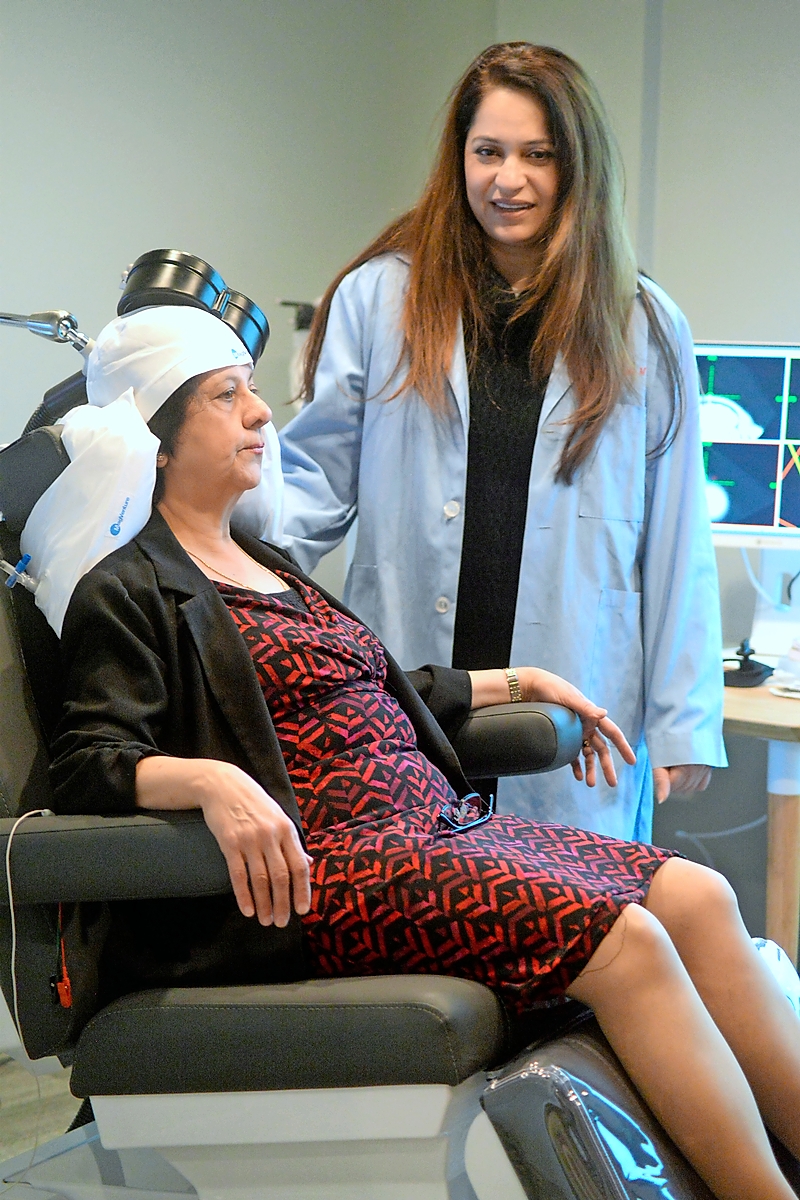Circuit repair
By Mark Loehrke
April 2019 View more 630

When it comes to depression, the statistics themselves can be pretty bleak. The disease affects over 16 million adults in the United States, and is forecast to be the second-leading cause of disease—and the No. 1 cause of disability—by 2020.
But individuals struggling with chronic depression—particularly those not seeing adequate response to traditional first-line treatments such as psychotherapy, cognitive behavior therapy, and medication—have a new local option that may provide a glimmer of hope.
At Mindful TMS Neurocare in Wheaton, patients can opt for neuronavigation-based transcranial magnetic stimulation. Recently approved by the FDA, this noninvasive treatment involves delivering targeted magnetic wave pulses to the brain to help reset abnormal circuitry. The beams are targeted using neuronavigation, allowing for precise delivery of these waves to a specific area known as the dorsolateral prefrontal cortex—fertile ground for the functional and structural disturbances that ultimately lead to depression.
TMS is generally delivered in 20-minute sessions, with 25 to 30 sessions recommended for a successful course of treatment. While the treatment is as technologically advanced as it sounds, it’s just one more tool mental health professionals employ in the battle against one of the defining health issues for America in the decades to come.
“Our understanding of depression has changed with the advances of neuroimaging over the last decade,” says Dr. Saima Sabah, a consultant psychiatrist working with Mindful TMS Neurocare. “I am proud to be working with this new treatment modality for patients.”
Photo courtesy Mindful TMS Neurocare


